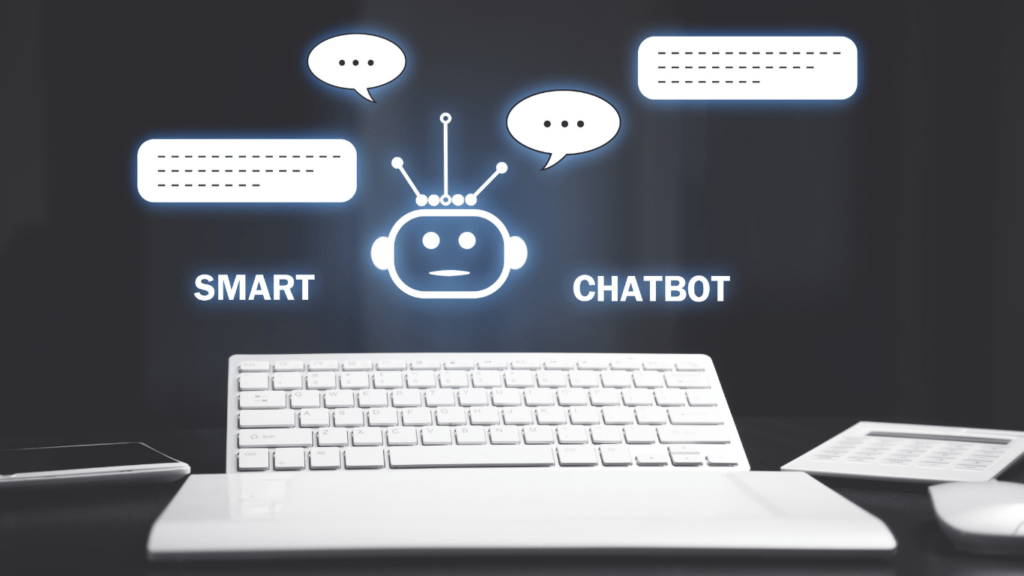Customer support is evolving faster than ever, and AI chatbots are at the center of this transformation. Businesses are turning to these digital assistants to handle inquiries, resolve issues, and provide instant responses around the clock. But with all the buzz, it’s natural to wonder—are chatbots actually replacing human customer support?
The Rise Of AI Chatbots In Customer Support
AI chatbots have rapidly transformed how businesses interact with customers. These tools integrate advanced natural language processing (NLP) to address concerns, resolve issues, and deliver personalized experiences.
How AI Is Transforming Customer Support
AI-powered chatbots handle high volumes of customer queries simultaneously. Platforms like ChatGPT and Dialogflow use machine learning to understand nuanced questions, enabling real-time responses without delays. Automation reduces response times while maintaining quality. For example, e-commerce companies use chatbots to process refunds and recommend products.
With multilingual capabilities, AI chatbots serve global audiences. Travel and hospitality sectors implement language-aware bots to resolve international customer inquiries. By gathering real-time insights, these tools also predict customer needs, resulting in proactive engagement.
Key Benefits Of AI Chatbots For Businesses
AI chatbots cut operational costs by reducing dependency on large customer support teams. Startups and enterprises alike report significant savings by automating repetitive tasks.
Chatbots scale customer support functions during peak hours. Retail platforms deploy AI chatbots to handle increased demand during holidays, ensuring uninterrupted service. Unlike human agents, chatbots are available 24/7, offering continuous assistance.
Data-driven insights improve decision-making. AI chatbots collect customer feedback during interactions, helping businesses identify service gaps. For example, financial institutions utilize feedback to enhance their offerings.
By eliminating human error in routing or responses, AI chatbots enhance accuracy. Banking platforms protect user data by leveraging secure chatbots for account-related inquiries. This reliability builds trust and improves customer satisfaction.
Are AI Chatbots Replacing Customer Support Teams?

AI chatbots are transforming customer service operations by automating many tasks previously handled by humans. While they enhance efficiency, they aren’t fully replacing human support across all scenarios.
Strengths And Limitations Of AI Chatbots
AI chatbots excel in handling repetitive, high-volume inquiries like:
- order tracking
- password resets
- FAQs
Gartner reported that by 2023, 70% of customer interactions involve chatbots or similar technologies. These tools ensure faster response times, availability around the clock, and scalability during peak demands. They also minimize operational costs and errors, particularly in industries like retail and banking.
However, limitations exist. Chatbots struggle with complex, nuanced issues requiring emotional intelligence or contextual understanding. For instance, resolving disputes, addressing technical breakdowns, or handling emotionally charged complaints often demands empathy and adaptive problem-solving beyond a bot’s capacity. AI models, even advanced ones, may provide misleading responses when encountering unfamiliar queries due to gaps in training data. Maintaining privacy and preventing biases in chatbot interactions also remain critical challenges.
The Role Of Human Support In A Chatbot-Driven World
Human agents complement chatbots by addressing situations where automation falls short. Augmenting chatbots with human support ensures smoother escalation processes for high-stakes interactions. For instance, travel agencies reroute chatbot conversations to human agents when customers require itinerary adjustments during emergencies.
Humans specialize in personalization and building rapport, which is essential for customer retention in competitive industries. In hybrid models, AI handles routine workflows while agents step in for tailored solutions. This synergy optimizes the customer journey, leveraging the strengths of both entities.
Features To Look For In The Best Chatbot Platforms
Selecting the best chatbot platform requires a focus on critical features that ensure smooth operation and effective customer interaction. I evaluate platforms based on their ability to enhance communication, scale efficiently, and provide actionable insights.
Conversational AI Capabilities
Advanced conversational AI capabilities define a platform’s success. Natural language processing (NLP) and machine learning enable chatbots to understand intents, detect sentiments, and maintain context throughout interactions. For instance, platforms like Dialogflow and IBM Watson enhance personalization by analyzing customer queries and providing contextually relevant responses. Additionally, multilingual support ensures global accessibility, crucial for international businesses.
Scalability And Integration
Scalability allows platforms to handle large query volumes without compromising response time. Top-tier platforms like LivePerson and ChatGPT API offer seamless scaling during peak periods, such as promotional campaigns or holiday seasons. Integration with CRM tools, social media, and e-commerce platforms ensures consistent experiences across channels, streamlining data synchronization and customer tracking.
User-Friendly Design And Analytics
A user-friendly design simplifies chatbot management for businesses. Drag-and-drop interfaces reduce complexity when creating workflows or updating FAQs. Tools like ManyChat and Tars offer intuitive platforms designed with non-technical users in mind. Analytics dashboards track performance metrics, such as resolution rates and customer satisfaction scores, enabling continuous optimization of bot functionality based on real-time insights.
The Best Chatbot Platforms Today
AI chatbot platforms play a critical role in modern customer support strategies by offering tailored features and adaptability. Identifying the right platform depends on evaluating core functionalities, use cases, and integration potential.
Leading Platforms And Their Features
- Dialogflow: Google’s NLP-powered platform handles complex conversation flows with advanced intent recognition and context management. It offers pre-built agents, supports over 20 languages, and integrates seamlessly with Google Cloud services.
- IBM Watson Assistant: Known for its powerful AI, it excels in understanding nuanced queries and delivering personalized interactions. IBM Watson supports omnichannel deployments and provides robust analytics for refining customer engagement strategies.
- ChatGPT by OpenAI: Specializes in generating conversational, human-like responses using OpenAI’s GPT model. It’s ideal for businesses needing highly adaptable dialogs but may require third-party plugins for integration.
- Microsoft Bot Framework: This platform provides a developer-friendly environment offering SDKs and tools to build intelligent bots. It supports multi-channel delivery and advanced customization options for technical teams.
- Zoho SalesIQ Chatbot: Designed for seamless CRM integration, this tool automates lead generation and customer interactions. It works effectively for sales-driven industries looking for AI-driven engagement.
Comparing Platforms Based On Use Cases
- E-commerce: Dialogflow and IBM Watson Assistant lead in order tracking, customer inquiries, and product recommendations. Their advanced AI minimizes redundant tasks while providing accurate, personalized results.
- Banking And Finance: IBM Watson offers security-rich support for handling sensitive customer data. It ensures compliance with financial regulations across regions while enabling 24/7 assistance.
- Healthcare: Microsoft Bot Framework adapts well to creating chatbots for appointment scheduling, FAQs, and patient triage. Its scalability and HIPAA-ready modules make it trusted in medical industries.
- Retail: ChatGPT excels in providing engaging, human-like conversations tailored to customer preferences, boosting retention in competitive retail sectors.
- SMBs: Zoho SalesIQ helps small businesses manage leads and maintain customer engagement without overextending financial resources. It’s user-friendly while offering powerful CRM tools.




